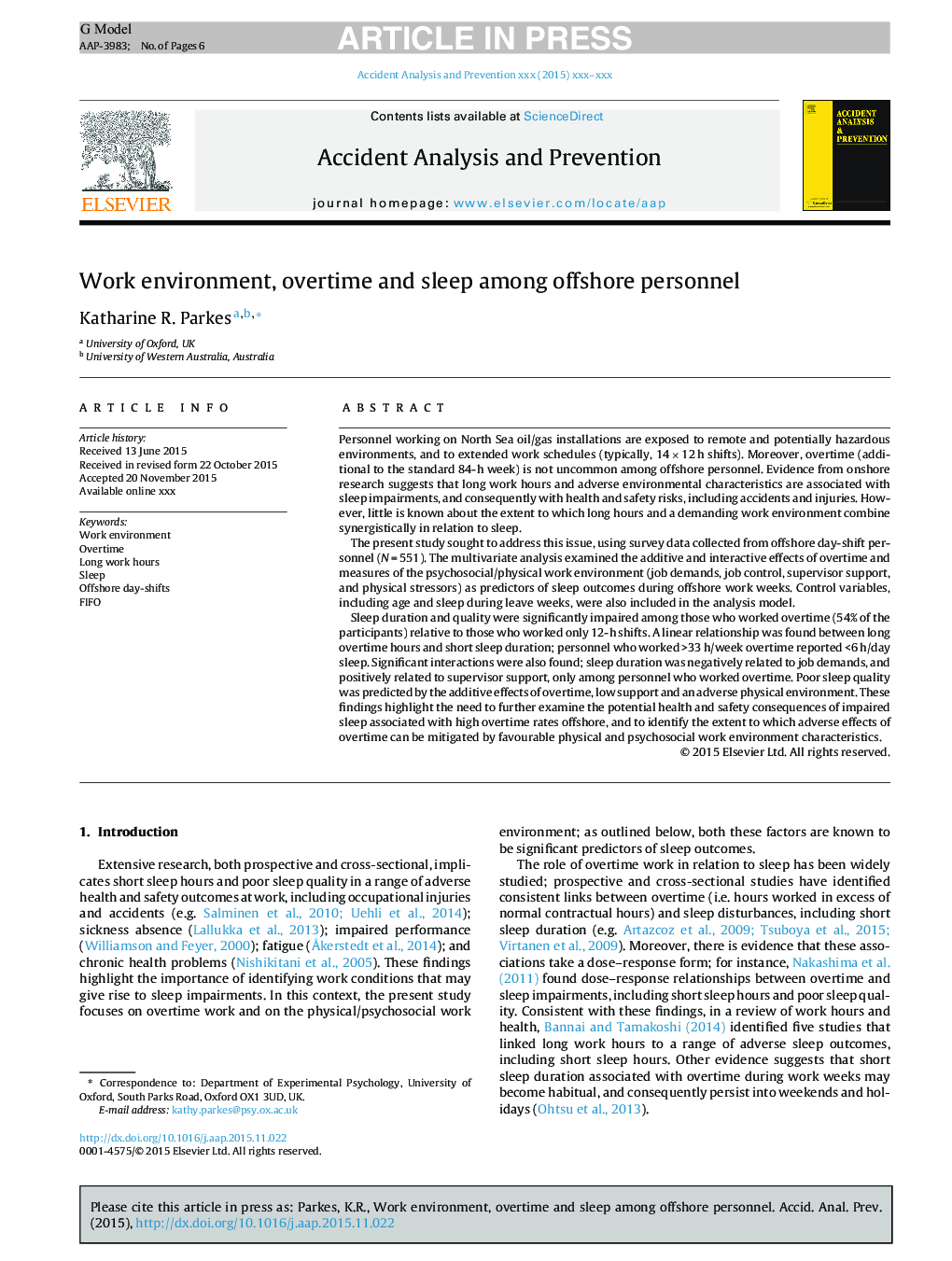| Article ID | Journal | Published Year | Pages | File Type |
|---|---|---|---|---|
| 4978762 | Accident Analysis & Prevention | 2017 | 6 Pages |
Abstract
Sleep duration and quality were significantly impaired among those who worked overtime (54% of the participants) relative to those who worked only 12-h shifts. A linear relationship was found between long overtime hours and short sleep duration; personnel who worked >33Â h/week overtime reported <6Â h/day sleep. Significant interactions were also found; sleep duration was negatively related to job demands, and positively related to supervisor support, only among personnel who worked overtime. Poor sleep quality was predicted by the additive effects of overtime, low support and an adverse physical environment. These findings highlight the need to further examine the potential health and safety consequences of impaired sleep associated with high overtime rates offshore, and to identify the extent to which adverse effects of overtime can be mitigated by favourable physical and psychosocial work environment characteristics.
Keywords
Related Topics
Physical Sciences and Engineering
Chemical Engineering
Chemical Health and Safety
Authors
Katharine R. Parkes,
